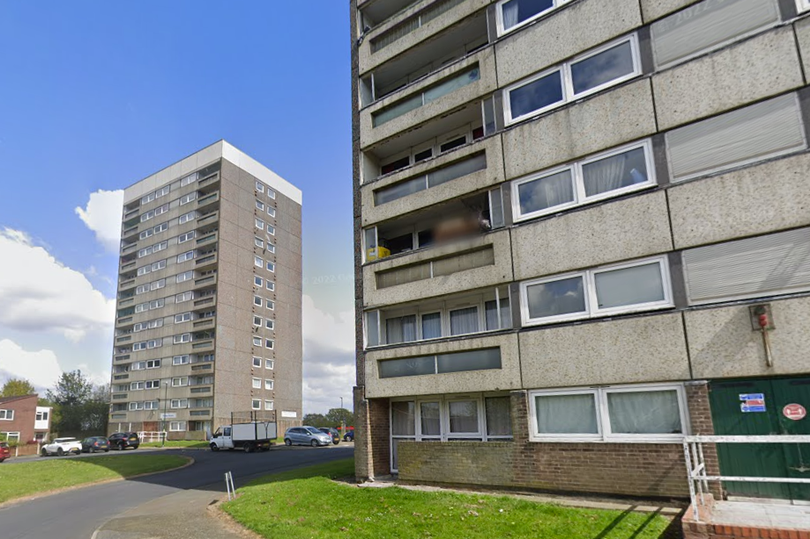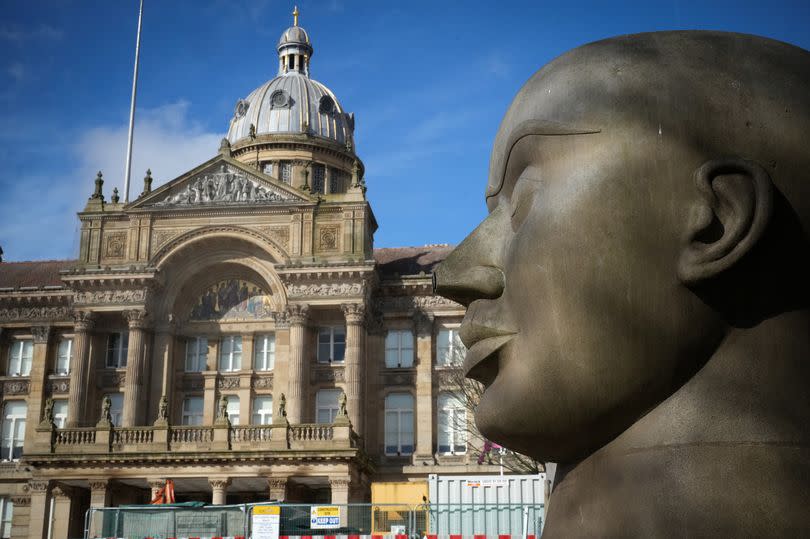CCTV pilot for Birmingham tower blocks being considered amid crime concerns

New CCTV cameras are being considered for numerous tower blocks across Birmingham amid concerns over criminal damage, drug taking, fires and more in certain areas. The city council has said it recently committed to exploring how CCTV could be reintroduced into council high and low-rise blocks and neighbourhoods to help residents to feel safer in their home.
It is therefore now seeking approval to implement a 12-month CCTV pilot, which could then provide evidence to support a possible wider implementation across the city. A recently-published report said several “hotspots”, where a particular block or estate is experiencing significant crime and antisocial behaviour (ASB), have been identified to trial the potential use of the new cameras.
The data used to identify these areas include complaints, crime, persistent fly-tipping and ASB such as criminal damage, fires and drug taking. “The council interacts with tenants and leaseholders in many ways in relation to housing issues,” the report stated.
READ MORE: Birmingham schoolgirl’s emotional plea as pressure mounts over vital city service
“A constant theme within these interactions is that the majority of tenants feel that the council should provide CCTV to act as a deterrent to crime and ASB". However, the use of such cameras beyond the 12-month pilot could come at a cost in the future.
In the report, the council acknowledged the difficulties many tenants and leaseholders are facing - including the cost-of-living crisis and increases in council tax. “It is proposed that for the initial 12-month implementation period and a further three-month evaluation period following completion of the pilot programme, this cost is absorbed by the council via the HRA,” it continued.
“This will allow sufficient time for the effectiveness of CCTV to be measured and for any corresponding improvement in tenant perception to be assessed. Any decision to proceed with the CCTV programme [after the pilot] and the introduction of a service charge to cover the ongoing implementation costs will be considered as part of the wider service charge review.”
“The number of tenancies affected by the pilot programme (assuming full occupation of each block) is 1,168,” the report added. “The indicative cost of the implementation per unit would therefore be £102.74 per annum per unit, or £1.97 per week levied via the service charge.
“This cost would be applicable to both tenants and leaseholders.”

Why did the council previously decommission CCTV?
The council’s decision to previously decommission all CCTV around 10 years ago was taken based on the financial pressures at the time. The report said: “This decision was in part informed by the potential increase in service charges needed to fund the upgrade of the CCTV system, at a time when the switch to Universal Credit meant that many tenants were coping with budgeting their income to meet their outgoings.”
It continued: “At the time of the decision to decommission in 2014, the projected costs to upgrade the system were £13m (£18m at 2023 prices). The decision was taken to move from CCTV to a system of enhanced remote night security and secure entry systems to all high-rise blocks.”
However, the report acknowledged that since the decommissioning of the CCTV system, there has been an increase in crime and ASB within many blocks. In fact, the council received 4,384 reports of ASB in 2022-23.
“Whilst this may in some regard reflect national trends relating to increases in crime and ASB, the perception of our tenants is that the two factors are directly related, and that the council’s decision to decommission CCTV has driven this increase,” the report added. Birmingham City Council’s cabinet has been recommended to approve the CCTV pilot across specific hotspot areas and will consider the proposals on Tuesday, June 25.
The priority hotspot blocks, according to the report, are as follows:
Bakeman House - South Yardley
Barrow House - North Edgbaston
Brookpiece House - Druids Heath and Monyhull
Browning Tower - Bournville and Cotteridge
Coppice House - Tyseley and Hay Mills
Drews House - Druids Heath and Monyhull
Essington House - Ward End
Harrison House (Sheltered) - Druids Heath and Monyhull
Hollypiece House - Tyseley and Hay Mills
Homemeadow House - Tyseley and Hay Mills
Inkerman House - Newtown
Jordan House - Hodge Hill
Kineton House - Billesley
Loweswater House - Kings Norton South
Middlefield House - Druids Heath and Monyhull
Moor House - Druids Heath and Monyhull
Parker House - Druids Heath and Monyhull
Pleck House - Druids Heath and Monyhull
Sandhurst House - Kings Norton South
Shelley Tower - Bournville and Cotteridge
Topfield House - Druids Heath and Monyhull
Waltham House - Kings Norton South
Wyrley House - Stockland Green
Keep up to date with all the latest politics news with our politics newsletter. You can sign up for free here to get stories delivered straight to your inbox to read at a time convenient to you.
See our top stories and avoid ads by downloading our app to your phone or tablet

 Yahoo News
Yahoo News 
